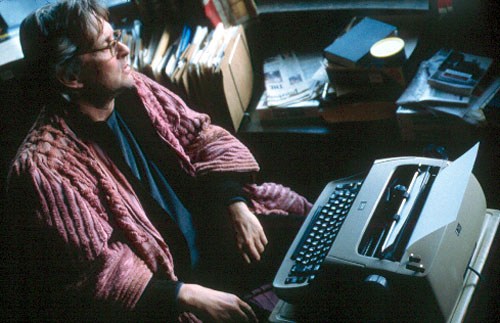Write Well or Perish

Some years ago, when I spent most of my time on the edge of the country, just a few miles from falling into the Pacific, so very far from these cozy cornfields that hug me today, I often found myself agonizing over my craft. There was this crippling anxiety that if I didn’t scribble down the tips I stumbled upon along the way, I would lose them entirely. Simply, I had yet to develop and trust my own writerly instincts.
Those days, when I read or heard or observed some little lesson worth remembering, I compulsively added it to a messy, handwritten list I labeled, “Write Well Or Perish.”
Now, for the first time, as I remain buzzy from twelve glorious days at what I affectionately call “book camp” (and several dozen teaspoons of Dimetapp for the cold caught at what I affectionately call “book camp”), I’m sharing an excerpt from this haphazard list. Prepare to feel simultaneously inspired, infuriated, defensive, and reflective. Here we go….
Why start here, NOW, in this very place, at this very moment?

Oftentimes, in the beginning they WANT something, in the middle they learn they NEED something, and at the end they EARN something.
Avoid FLAT adjectives.
NEVER START WITH WEATHER.
Write killer opening lines for every character.
Comedic characters must be weighted by dark underpinnings.
People rarely say what they mean.
CREATE MISINTERPRETATIONS & MISCOMMUNICATIONS.
The villain is the hero in her own story.

No matter how sweet or innocent your leading character, make AWFUL things happen to them. Drag that perky bride through mud. No one gets through life, or a story, unscathed.
Empower the setting details to contribute to character, theme, and plot.
Surprise your audience and your characters, or better yet, yourself.
Be subtle, concise, and nuanced.
SHOW, don’t tell, unless you should really just tell and get it over with and move on.
Every sentence must do one of two things— reveal character or advance action. The best sentences do both.

In a movie, you have two hours to say something to the world. What do you want to say?
In a screenplay, you must know why pages 10, 30, 60, and 90 are important.
Does your story have a PROTAGONIST, a MAIN CHARACTER, or a HERO? This distinction can matter. As the author, you should know.
Always “cut” leaving the reader/viewer wanting to know more. Cliffhangers, loose ends, lingering suspense, building tension, unanswered questions, “a smoking gun in the drawer,” call it what you like, but it MUST always be present.
Beware of the word “think.” Having a character “think” in a visual medium does not work.

Do not rely too heavily on the almighty montage.
Before you become too in love with a premise, make sure you didn’t overlook a “quick fix” that any real person would use to solve the main conflict. (For instance, if you’re writing a crime thriller and all your protagonist would have to do to solve the conflict is call the cops, make sure you give a specific, compelling, believable reason s/he cannot.)
Use flashbacks and voice-over narration sparingly. (It is seen as a storytelling crutch.)
Never kill your darlings. Stash them away for another day.
IF IT SOUNDS LIKE WRITING,
REWRITE IT.
A LOT of the amazing giants in writing are/were alcoholic, suicidal, depressed, reclusive, loveless, alienating, chronically pissed. Maybe it’s okay to just be really good….

For self-preservation, always have multiple projects going at different stages of development.
Be aware of genre conventions, the marketplace, and trends. Then do whatever you want, anyway.
Be economical. You have only 120 pages of real estate in film, and only so much patience in print.
No one knows enough to only write what they know. Write what your friend, brother, and neighbor knows, too. BE A SPONGE.
By Act Three you should instinctively know what your characters would do and say. Act Three should write itself.
The most important thing about a writer is her VOICE. You cannot spend too much time finding yours.
Study your favorite stories. How do they work? Why do they work?
Archetypes usually work. Don’t reinvent the wheel. Roll it somewhere new.

Know how you write ALONE before collaborating. (Two driving permits doesn’t equal a license.)
As insignificant as they seem, typos really do matter.
Everyone has a story. Some are just better than others. (THIS IS FICTION! Embellish!)
Good ideas germinate. One of the few perks of being a writer is that you can walk around looking like a lazy sloth and call it work. Take advantage of this.
If “to write is human,” and “to edit is divine,” then strive to be divinely human.
And lastly, for now, the best writerly “lesson” I’ve picked up along the way: Come up with a heap of bad ideas. One is bound to emerge as decent and decent ideas are hard to come by.
Now, happy writing, happy reading, and, as my dear dad reminds,
“Get to work, and be grateful to do it.”


